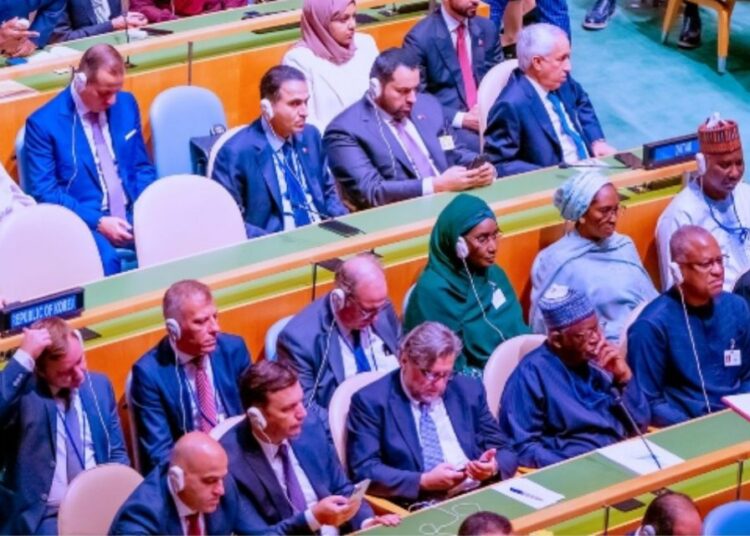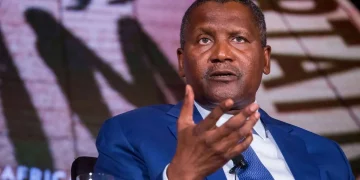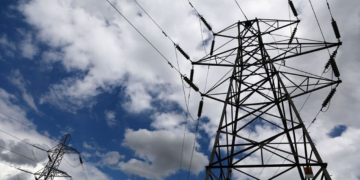As global leaders gather at the 77th United Nations General Assembly (UNGA) in New York, the emphasis on fostering international partnerships for economic growth and stability takes center stage. These collaborations are crucial for addressing global challenges and promoting sustainable development.
Sadly, the growing dependence on foreign loans to finance these efforts raises significant concerns about the long-term economic impact. While foreign loans offer short-term relief and the potential for development, the long-term consequences could be severe, including increased financial vulnerability and reduced fiscal space for critical investments.
However, stakeholders in the country have continued to raise the alarm over the increased foreign loan and its negative consequences on the economy.
As of 2022, Nigeria’s external (foreign) debt was approximately $40 billion. This figure represents the total amount of debt that Nigeria owed to external creditors, including international financial institutions, foreign governments, and private sector lenders.
The debt burden has been a significant issue for Nigeria, affecting its ability to finance key infrastructure projects and address economic challenges.
The country’s total debt, including domestic debt, was around N42.84 trillion or approximately $103 billion. The Nigerian government has been exploring various strategies, including international partnerships and financial assistance, to manage and mitigate the impact of this debt on the economy.
Among the critical discussions at this year’s assembly, Nigeria’s collaboration with the United States emerged as a significant narrative, particularly with the commitment expressed by Reto Jo Lewis, the President of America Export-Import (EXIM) Bank.
At the Nigeria International Economic Partnership Forum, a pivotal side event at the UNGA, Lewis emphasised the United States’ dedication to supporting Nigeria’s economic growth and shared prosperity.
Lewis, who stands as the first African American and the first person of color to lead the EXIM Bank, underscored her commitment to making substantial investments in Sub-Saharan Africa, with Nigeria being a primary focus.
Lewis revealed that she carries a mandate from the U.S. Congress to increase transactions and financing in the region, particularly in the aftermath of global challenges like the pandemic and supply chain disruptions.
“I want to let you know that the Export-Import (EXIM) Bank of the United States stands ready to be a partner in Nigeria’s economic growth,” Lewis stated.
Her words were not just diplomatic rhetoric; they reflected a genuine commitment to deepening economic ties and fostering collaborations that will benefit both Nigeria and the United States.
A New Era of Economic Diplomacy
Lewis’s role at EXIM Bank is not just about increasing financial transactions; it’s about creating opportunities that drive economic transformation. She highlighted ongoing efforts to bring in leading experts in Africa to advise on the best investment strategies, with a focus on innovative and sustainable projects.
This approach aligns with the Biden administration’s broader strategy to bolster economic security through international collaboration, recognizing that economic stability is intrinsically linked to national security.
Her commitment is further demonstrated by the formation of an external working group at EXIM Bank, an initiative that is set to bring fresh perspectives and expert advice to ensure that investments in Africa, particularly Nigeria, are impactful and sustainable.
Lewis’s proactive stance, including her involvement in bilateral exchanges and MoUs with Nigerian leaders, signals a new era of economic diplomacy where mutual benefits are prioritized.
Nigeria’s Position at UNGA: A Call for Enhanced Global Partnerships
Nigeria’s presence at UNGA was marked by President Muhammadu Buhari’s call for increased trade volumes between Nigeria and the United States. Addressing the Business Council for International Understanding (BCIU), Buhari emphasized Nigeria’s potential beyond oil and gas, highlighting sectors such as agriculture, healthcare, and technology as areas ripe for investment.
Buhari’s message was clear: Nigeria is open for business, and the opportunities far outweigh the challenges. With a population of over 200 million and a GDP exceeding $400 billion, Nigeria is not only Africa’s largest economy but also a critical player in global supply chains.
The President underscored the importance of diversifying the economy, a goal his administration has been pursuing since 2015. This diversification is not just about economic stability; it’s about positioning Nigeria as a reliable partner in global trade. Buhari’s call for collaboration with the U.S. on strategic investments and supply chain integration is particularly relevant in light of the ongoing global disruptions caused by the Russia-Ukraine conflict and the lingering effects of the pandemic.
UNGA’s Broader Agenda: Promoting Global Cooperation
The discussions at UNGA go beyond bilateral relations. The assembly serves as a platform for addressing global challenges and promoting international cooperation.
Nigeria’s engagement at this forum reflects its commitment to being an active participant in shaping global policies, particularly in areas that align with its national interests.
UNGA’s role in promoting international political cooperation, human rights, and economic collaboration is more crucial than ever. As Nigeria navigates its economic challenges, particularly its debt burden, the country is looking to international partners for support.
President of the African Development Bank (AfDB), Akinwumi Adesina, echoed this sentiment at the Nigeria International Economic Partnership Forum, calling for global assistance to alleviate Nigeria’s debt crisis.
Adesina’s stressed the broader context in which Nigeria operates—a context where global partnerships are not just beneficial but necessary.
He pointed out that while Nigeria’s debt levels are significant, with external debt standing at $40 billion, international partnerships can help mitigate these challenges.
The issuance of Special Drawing Rights (SDRs) by the International Monetary Fund, for instance, provides liquidity support, but Africa, including Nigeria, has only received a fraction of what is needed.
Basically, ensuring that these partnerships contribute to long-term stability, rather than short-term gains at the cost of future prosperity, is key to achieving the goals set forth by the UN and fostering true global development.
We’ve got the edge. Get real-time reports, breaking scoops, and exclusive angles delivered straight to your phone. Don’t settle for stale news. Join LEADERSHIP NEWS on WhatsApp for 24/7 updates →
Join Our WhatsApp Channel










